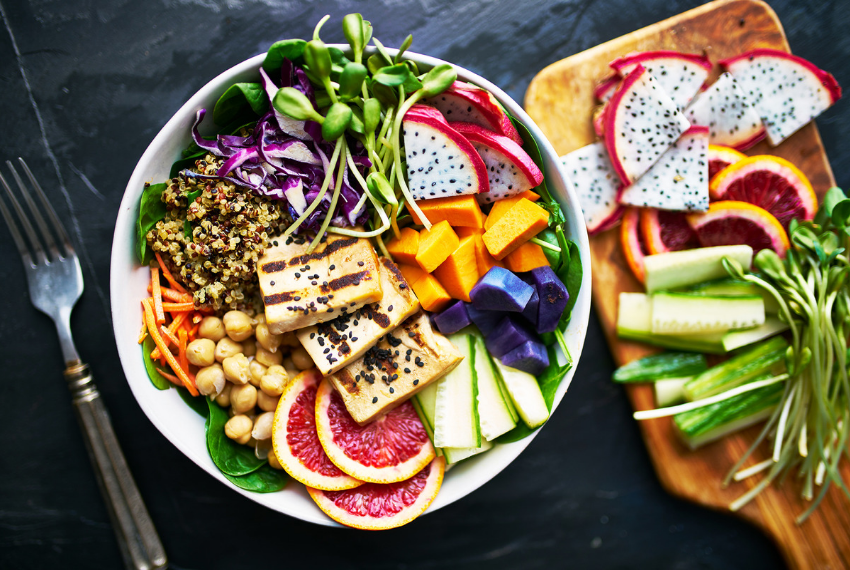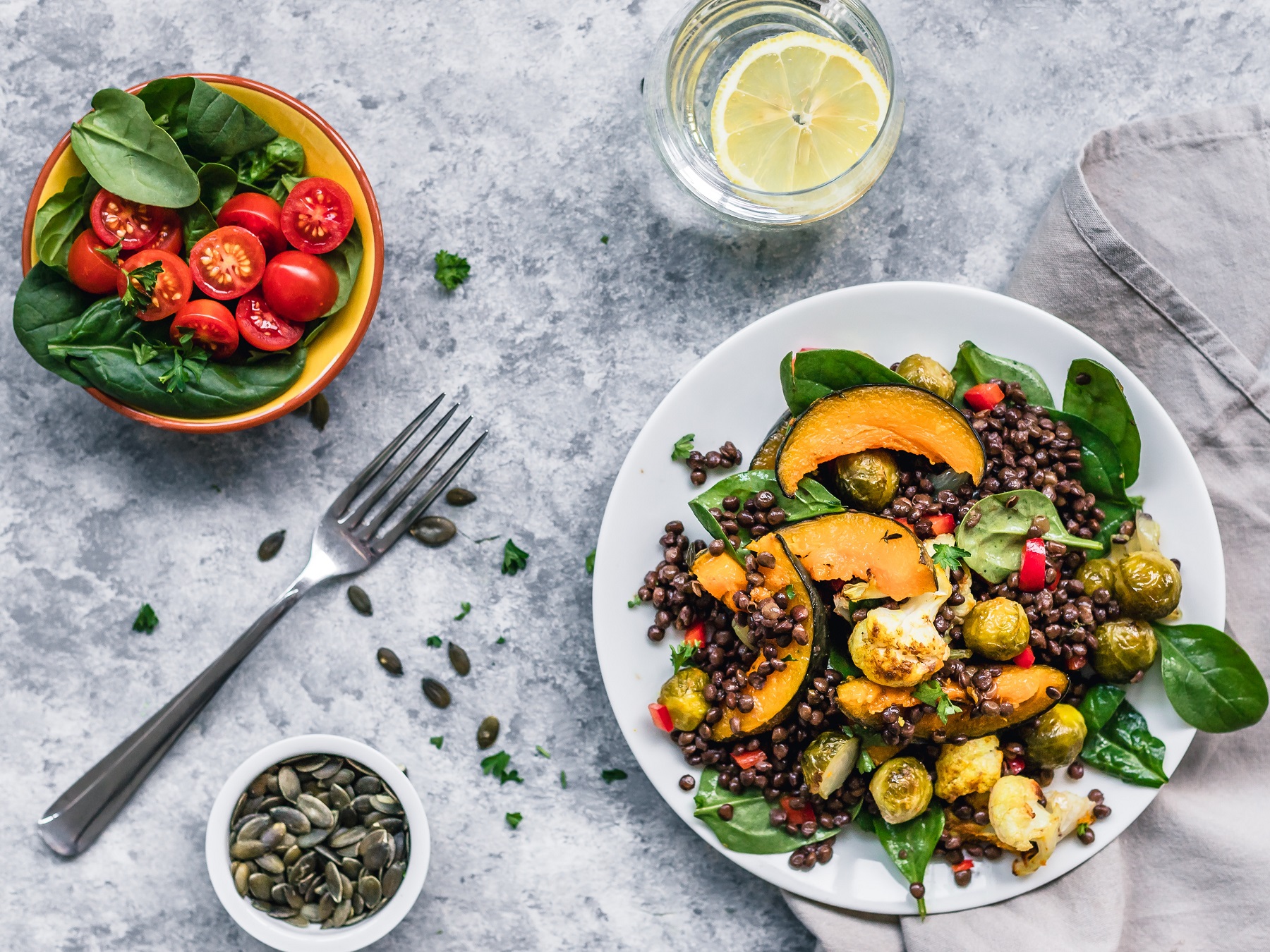
Food and mood. There’s more to this relationship than just rhyming. Have you ever noticed that your mood affects your choice in food? Guilty as charged here. However, the question on many lips is, can food also affect our mood?
In general, most people know that eating a healthy and balanced diet is good for our bodies. This message has been sung by many a health professional. But now, mental health professionals are beginning to hum the same tune. So, could food and mood be a two-way street?
What should be on the menu to improve mood?
Research in the nutritional psychiatry field is booming and starting to reveal how our dietary choices may influence how we feel. A typical western diet which is notoriously low in fibre and high in fat and sugar from processed foods has been associated with a greater likelihood of psychological symptoms and disorders1. Conversely, the Mediterranean diet which is high in plant-based fibres has been observed to improve and reduce the risk of various health conditions, including depression and anxiety1-3.
See your microbiome’s potential to reduce feelings of depression and anxiety with Insight™.
Recent research has also revealed that people with the highest adherence to the Mediterranean diet over a period of time have lower odds for developing depression compared to those with lower adherence4. Therefore, this begs the question, what exactly is the Mediterranean diet?
The Mediterranean diet
This exotic sounding diet is based on the traditional eating habits of people who live around the Mediterranean sea and is rich in fruit, vegetables, nuts, seeds, legumes, grains, fish, and olive oil and red wine consumed in moderation.
This style of eating is generally abundant in beneficial fats, polyphenols and fibre, with more protein coming from vegetables rather than animals5.

The long list of whole foods typically consumed in a Mediterranean diet indicates that there is no single “superfood” that can improve how we’re feeling. Rather, there is a range of foods that can be beneficial for us.
This is because food is complex and comprises of many different nutrients within a single food. The same message is clear in terms of our gut microbiome. There is no single “superfood” that feeds all the beneficial bacteria, or us for that matter.
Consuming a high fibre plant-based diet with as much variety as possible contributes a diverse range of prebiotics to help nourish our friendly gut bacteria6,7. When the beneficial bacteria in our gut are thriving, they tend to help us thrive too.
How might the microbiome be linked to mood?
Our large intestine is home to masses of bacteria and other micro-organisms and is commonly termed the gut microbiome. Within this community of bacteria live species that can break down fibre and generate short chain fatty acids (SCFAs) such as butyrate and propionate5. These helpful substances can play various roles in our health and wellbeing and possibly how we are feeling every day.
Want to know the types of whole foods your gut microbiome needs to produce helpful substances? Discover Insight™.
Serotonin is a chemical that can have many functions in the body, but is generally thought of as a natural mood stabilizer. It helps us to feel happier, calmer and less stressed and anxious. The good news is that butyrate and propionate produced within the gut microbiome can stimulate our gut cells to produce serotonin8. Almost 90% of serotonin is produced in our gut, therefore, if we consume adequate amounts of fibre in our diet, we can theoretically optimise the production of SCFAs and ultimately our serotonin levels.
Below, is a special mini meal plan to try out for taste and see how you feel!
One-day high-fibre Mediterranean meal plan
Breakfast
Toasted multigrain bread with avocado, hummus, sliced tomato and olives with a boiled egg and some fetta on top. 10g fibre*
Lunch
Spiced lentil and chickpea patties with Greek salad. 18g fibre*
Dinner
Baked salmon with roasted baby potatoes, eggplant, capsicum, zucchini and steamed broccoli. 5g fibre*
Snacks
Veggie sticks and hummus
Nuts (1 serve = 30g). 2g fibre
Apple. 3.5g fibre
Dates (2). 3.5g fibre
Olives (10). 1.5g fibre
*These items may vary and this meal plan is dependent on food intolerances, recipes and serve size.
For more hints and tips on the Mediterranean diet, check out Two Greek Girls.
Although studies show that diet may play an important role in our mental health, it shouldn’t replace treatments prescribed by qualified and experienced mental health care professionals. It should also be noted, that adherence to a plant rich diet over a long period of time seems to have the strongest level of evidence in terms of its effectiveness.
If you are considering adopting the Mediterranean diet, before implementing any changes, consult with your dedicated health care professional or see our list of Microba informed practitioners.
*While Microba attempts to make the information on this site as accurate as possible, the diet recommendations and views expressed here belong to the author and do not necessarily reflect those of Microba.
This microbiome test is not intended to be used to diagnose or treat medical conditions. A full disclaimer is available here
References
1. Jacka FN, Pasco JA, Mykletun A, Williams LJ, Hodge AM, O’Reilly SL, Nicholson GC, Kotowicz MA, Berk M. .
Association of Western and Traditional Diets with Depression and Anxiety in Women..
American Journal of Psychiatry 2010 167:3, 305-311
2. Sanchez-Villegas A, Martinez-Gonzalez MA, Estruch R, Salas-Salvado J, Corella D, Covas MI, Aros F, Romaguera D, Gomez-Gracia E, Lapetra J, Pinto X, Martinez JA, Lamuela-Raventos RM, Ros E, Gea A, Warnberg J, Serra-Majem L..
Mediterranean dietary pattern and depression: the PREDIMED randomized trial. .
BMC Medicine. 2013;11:208
3. Lai JS, Hiles S, Bisquera A et al. .
A systematic review and meta-analysis of dietary patterns and depression in community-dwelling adults. .
Am J Clin Nutr. 2014;99:181-197
4. Lassale C, Batty GD, Baghdadli A, Jacka F, Sanches-Villegas A, Kivimaki M, Akbaraly T. .
Healthy dietary indices and risk of depressive outcomes: a systematic review and meta-analysis of observational studies..
Molocualr Psychiatry. 2018; 24:965-986.
5. Sing RK, Chang H, Yan D, Lee KM, Ucmak D, Wong K, Abrouk M, Frarhnik B, Makamura M, Zhu TH, Bhutani T, Liao W. .
Influence of diet on the gut microbiome and implications for human health..
Journal of Translational Medicine. 2017;15:73
6. Williams, Barbara et al. .
Gut fermentation of dietary fibres:physico-chemistry of plant cell walls and implications for health..
International journal of molecular sciences. 2017;18(100):2203
7. Gibson, G. R. et al. .
Expert consensus document: The International Scientific Association for Probiotics and Prebiotics (ISAPP) consensus statement on the definition and scope of prebiotics.. .
Nat. Rev. Gastroenterol. Amp Hepatol. 14, 491 (2017).
8. Reigstad CS, Salmonson CE, Rainey JF, Szurszewski, Linden DR, Sonnenburg JL, Farrugia G, Kashyap PC. .
Gut microbes promote colonic serotonin production through an effect of short-chain fatty acids on enterochromaffin cells..
FASEB Journal. 2019;29:1395-1403
9. Warnberg J, Serra-Majem L. .
Mediterranean dietary pattern and depression: the PREDIMED randomized trial. .
BMC Medicine. 2013;11:208


